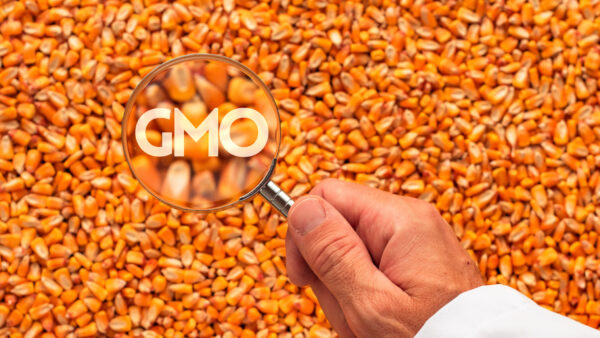European law currently requires food packaging to be labelled GM if more than 0.9% of any one ingredient is genetically modified.
But Rothamsted’s Professor Johnathan Napier, who has pioneered the GM production of Omega-3 fish oils by camelina plants, said the nature of the changes brought about by the technology would make it almost impossible to identify food imports into the EU that had been gene edited.
“The mutations created by gene editing can be identical to those created by classical plant breeding techniques or even natural variation. I cannot think of a way after the fact that you could distinguish which method had been used,” he said.
“This conundrum is one that will need to be urgently addressed by the EU’s regulatory agencies, not least if other countries and trading partners start the commercial cultivation of gene edited food crops that are then imported into Europe.”
Unlike GM, where genes from another organism are inserted into the genome, gene editing (GE) does not involve the incorporation of genetic material from other species.
Despite this, in July the European Court of Justice ruled gene edited organisms should be treated in the same way as GMOs.
According to Professor Napier, the EU ruling not only goes against the available scientific evidence, but it will ultimately hinder UN set targets for tackling poverty.
“Limiting the feasibility of GE field trials by expanding the complexity of the regulatory process and the associated financial burden of dedicated experimental sites will certainly hinder research and limit the contribution EU research can make to meet the challenge of the UN’s Sustainable Development Goals.
“Sadly, there is a general perception amongst European researchers that carrying out GM field trials is a burden that is best avoided. But at Rothamsted we understand the importance of field trials and strongly advocate for continued access to them as they are an essential component in the demonstration of efficacy for any new crop trait. “
Professor Napier’s comments appear in the latest issue of the journal eLife, where he recounts his experience of running Europe’s first – and possibly last – GE field trial.
The trial aimed to investigate the performance in the field of camelina plants whose genome had been edited to produce greater quantities of the monounsaturated fat, oleic acid, a chemical it naturally produces within its seeds.
Oleic acid demand is rising in Europe in response to calls to make processed foods healthier.
When Professor Napier, and his French colleague Professor Jean-Denis Faure (INRA-Versailles) started the trial in early June, the plants were not subject to GMO regulations – but this quickly changed with a subsequent ruling by the European Court of Justice.
“On 25 July 2018, in fact just as the plants had finished flowering, the Court pronounced that new gene-editing technologies should fall under the 2001 GMO directive. So, despite being planted as GE, the plants had to be harvested and handled as if they were GM.”
Despite this experience, Professor Napier says its vital funding agencies carry on supporting such activities, and academic institutions should not shrink from carrying them out.
Otherwise, he says, innovation in European plant science will be “significantly impaired”.
He said: “We strongly urge the scientific community to continue to make the case in Europe for access to research field trials for the evaluation of GE and GM crops.
“We must continue to advance our understanding of plant sciences and crop biology. Field trials, GE or GM, are a vital part of that process.”
Source: Rothamsted Research











